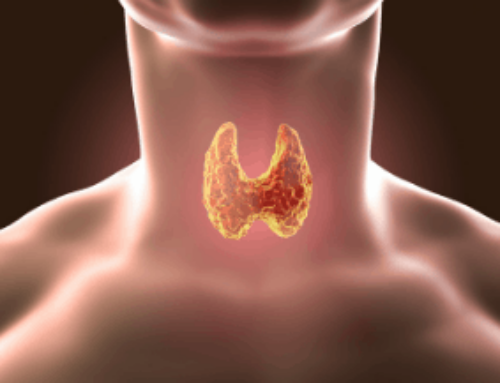Thyroid disease is one of the most common hormonal illnesses in society today. The most prevalent thyroid gland disorders are:
- Hyperthyroidism
- Hypothyroidism
- Thyroid Nodules
But what exactly is thyroid disease and how is it diagnosed and treated?
“When I view somebody with thyroid disease, I typically look at their thyroid condition in three different spheres: anatomical, functional, and etiological,†says Robert Constant, M.D., F.A.C.E., a board-certified clinical endocrinologist specializing in internal medicine and metabolism.
“The first is anatomic issues. And by that I mean is the thyroid a normal size? Or is it enlarged? If it is enlarged, is it nodular or diffusely enlarged? There are (specific) issues about nodules after examination that we may need to deal with. And so one area in which I work with patients is the anatomic abnormalities of the thyroid and what implications that might have on their clinical history and management.â€
What Is the Thyroid and What Does It Do?
The thyroid gland is located at the base of the neck, just below the Adam’s apple. The butterfly-shaped gland produces thyroid hormone and is responsible for distributing it throughout the body. Thyroid hormone regulates essential organic functions and metabolic processes including the speed at which you burn calories and the rate of your heartbeat.
“The next area we evaluate is functional issues,†says Dr. Constant. “The thyroid doesn’t have to look pretty, but it does have to function normally for it to maintain good health. And in that instance, we usually look at biochemical testing with blood tests. And based on those tests we can find out if the thyroid is over-functioning or under-functioning and make appropriate inferences about what we should do. Looking at somebody’s functional characteristics is an important aspect that we need to deal with when we consider thyroid disease.â€
Hyperthyroidism
Hyperthyroidism occurs when the thyroid gland becomes overactive and secretes more thyroid hormones than are necessary. The overproduction floods the body with thyroid hormones and as a result, a variety of essential processes to increase including energy use, metabolism, and heart and nervous system functioning.
A surplus of thyroid hormones can provoke:
- Weight loss
- Irregular heartbeat
- Irritability
Hyperthyroidism develops more often in adults over 60, and affect women more than men.
Hypothyroidism
Hypothyroidism is a common illness appearing when the thyroid gland doesn’t produce enough thyroid hormones to manage the numerous critical bodily functions properly. This hormone deficiency causes specific functions of the body to decrease like heart rate, brain functioning, and how fast food is converted into energy.
Women over 60 possess the greatest risk for developing hypothyroidism. If left untreated, the disease can generate a number of health complications including obesity, joint pain, infertility, and heart disease.
Thyroid Nodules
Thyroid nodules are focal areas of abnormal growths that occur in the thyroid gland. They may occur as a result of chronic inflammation in the gland, but also may have other causes. In many cases, the nodules are associated with thyroid enlargement (goiter), and there are often multiple nodules present (multinodular goiter).
The underlying cause of thyroid nodules is often unknown. Most thyroid nodules are not cancerous, but rather represent benign disease. Many different types of nodules can form in the thyroid gland. While most do not cause any symptoms, occasionally a nodule can become large enough to produce local neck symptoms, such as a “sense of fullness†in the neck. Less commonly, nodules can result in excessive thyroid hormone production and may lead to symptoms such as weight loss, nervousness or a rapid heartbeat.
Thyroid nodules require careful medical evaluation and follow-up to ensure that they do not cause additional medical problems. When a nodule is thought to be at risk for thyroid cancer, a fine-needle aspiration biopsy is performed. If cancer is detected, then thyroid surgery is typically recommended. In most cases, thyroid cancer can be successfully treated with current treatment protocols.
Understanding the Root Cause of Thyroid Disease
According to Dr. Constant, every patient is unique and so will be each patient’s treatment regimen. One of the most critical factors for successfully treating thyroid disease is to understand its cause.
“The third and the last area that we look at is etiology,†says Dr. Constant. “In other words, sometimes it’s very important to ask the question, why do you have thyroid disease? If you’ve got nodules, or if you have an under-functioning thyroid or an over-functioning thyroid, why is it that way? That’s not just an academic question. It’s a clinically important question, because very often what we recommend to the patient and how we end up managing them will depend on what the underlying cause is. And so we spend a lot of time trying to make sure that we understand the etiology, or the underlying mechanisms, by which they have a thyroid abnormality.â€





Leave A Comment